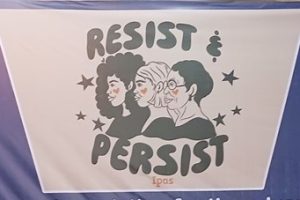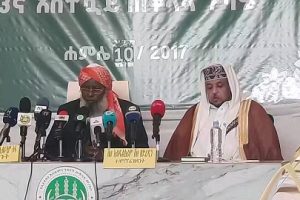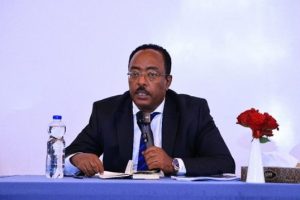
For almost three decades, Laurence Freeman, an American Political Economic analyst for Africa has been voicing critically against the west’s approach towards its economic relation with the developing world especially Africa. After creating his website entitled www.laurencefreemanafricaandtheworld.com, he has been lobbying for economic interventions that liberate Africa from poverty and has been suggesting ways that African policy makers should adopt in order to sustainably address the economic problems of Africa. During his latest interview with The Ethiopian Herald in connection with the BRICS summit in South Africa, he said that he is happy to see one of his dreams, for which he fought for about a generation, has come true. Enjoy reading the detail!
How do you see the course that BRICS has passed through so far?
The BRICS now has already emerged and is now accelerating its institution as an alternative to the western view of the world, and the Western political economic system that gives now called a new rules based international order. And that unipolar Western domination is now ending. And the BRICS is a very strong, emerging alternative. And as you know, an additional six countries have been invited to join the BRICS beginning 1st of January 2024. And of those six countries, Ethiopia is one of those countries, and Egypt is another. And therefore, out of the 11 nations, that will be BRICS members three of them will now be from Africa. So this is very good news for Ethiopia, for Africa, and for the World Development.
Two more African countries are now invited to join BRICS. How do you see the representation of Africa in the bloc?
What is clear now is the addition of Ethiopia, which is over 115 million people, and Egypt, which is over 105 million people. You’ve now two very important countries added to the bloc, the second and third most populous countries, of the African nations, and together with the existing member of South Africa.
So this is a very powerful representation, because these countries represent very significant pillars of the African continent.
Now, Ethiopia has been a leading nation in terms of driving economic development, not only in the country of Ethiopia, but really implicitly for the whole continent. Because of the Grand Ethiopian Renaissance Dam, which is going to produce 5,150 megawatts within two years. This dam will also lead to a great development in the Horn of Africa, East Africa, and Nile Basin nations.
Egypt has also been expanding its economy. It’s building nuclear power plants. It has built industrial complexes along the Nile River. And so these two additions, plus South Africa, which is the most industrialized nation on the continent, these three represent a very significant force for change and economic development in Africa. And the BRICS now has made it clear that they’re going to build the New Development Bank (NDB), which was set up after the BRICS; the NDB is going to be increasing its lending and 30% of its new lending will be in local currencies. So what we’re seeing is the domination of the dollar and the domination of the rules based order are now being said really weakened.
And we’re already in or approaching to the post unipolar Western dominated world. And BRICS is going to be one of the most central institutions in making those kinds of dynamic changes for world economic development. And of course, for Africa, with the level of poverty that exists on the continent, this could be a game changer.
Do you think there will be a confrontation with other contending blocs now that BRICS is expanding by more than double?
There is the danger of the West, taking measures against the BRICS, they have been organizing against the BRICS consistently. In fact, I found it very revealing that even days before the BRICS summit, which was the 22nd 23rd, and today to 24th, the whole western establishment in Western media was talking about how unimportant the BRICS summit was, and how it was much to do about nothing. And of course, they were just expressing their fear. Because if you ask China and other countries, they will tell you that they need oil. But they’re not just taking oil, they are building infrastructure and expanding the markets.
And the West has basically lost a level of its thinking capability, because rather than adjusting itself to these new developments; they’re trying to maintain the old developments. If, these BRICS countries, that are now growing to 11 increase the trade among themselves, if they’re increasing the investment among themselves, if they are building important infrastructure, manufacturing capabilities, and expand their markets, that each one of them can be selling to the other then it is given that the thing is going to be more and more dominated outside of the dollar, it’s going to be conducted in local currencies. So if the West, my United States, was more intelligent, we would be oriented toward also being part of the changes but the geopolitical mindset have always been on top and is in control, and the hegemony is preventing the west from thinking clearly.
The BRICS is a reality; just like the Belt and Road Initiative is a reality. It’s not going to be put back in the bottle, as we say. And it’s a potential for real growth, and energy for infrastructure and energy for manufacturing development projects.
It would be beneficial to all the countries involved, and the sooner the West, and the Secretary of State Blinken and President Biden and others wake up to this new reality, the better the world would be. We are facing a dangerous situation in Niger, West Africa, which I know well, is a sign of the same dynamic that you’re having. West African countries are rejecting colonialism; the French control over their economy, and are also rejecting military intervention. The coups are driven by the fact that the country is poor. One has to know the fact that there is only 3% of the Niger population accessing electricity. Less than 50% of the African continent has electricity access. Development is the most important aspect of the relationships with the BRICS. And the West does not or refuses to understand this vivid fact.
How should African countries work in collaboration with BRICS as an alternative source of finance, market?
One good thing is, they’re now going to be capable of having access to loans from the BRICS New Development Bank, and the NDB set up in 2015. So now this NDB is going to increase its loan portfolio. And it means that these countries may have an opportunity to get these loans. Now, these loans do not contain the conditionality that the IMF and World Bank attaches with. And the mindset of the BRICS, Brazil, Russia, India, China, South Africa, is the global south has to be developed.
The BRICS has already represented about a third of the GDP worldwide, about 40% of the global population. So both those figures are going to increase. So the reality is that the African nations are joining a new dynamic in a world that is going to offer them with the new opportunities. Don’t forget, Africa is suffering; people are dying every day, because of a lack of electricity, and a lack of manufacturing capability. Those two things had been denied to the nation’s economies of Africa, this now gives an opportunity to change. But the West has never wanted to see this kind of economic development, in manufacturing, in particular, and electricity. Those two things are addressed along with a plan for high speed integrated rail, which I’ve also written about it on my website, those things will change or transform the African continent, and this is the way to eliminate poverty.
And if you eliminate poverty, you can eliminate instability. The reason is a lack of security in many countries, especially on the Sahel is because there’s no development, because people live like beasts, forced to live that way without the basic qualities of life. And so if you transform that, you can transform the entire political economic security situation. So, Egypt is all the way up in the north of the continent. It has an effect on the whole Sahel region. Ethiopia is right there in the center of East Africa, is the largest economy in East Africa. This could obviously affect a number of countries, Kenya, Djibouti and Sudan. And then you have South Africa in the very tip in the south. And if we expand the relationships, if we build the high speed railroads, if we expand the electricity, if we build manufacturing centers, we can see a whole different Africa.
Now, the BRICS, can’t do that overnight. But as they expand their lending capability, and also complementary is the Belt and Road Initiative, over a period of time, we can see a significant change in the lives of Africans and that their material standard of living. So now, three of the 11 nations of the BRICS are African nations, because that’s already a very sizable bloc within the BRICS itself. So I’m very optimistic about the potential and I’m very happy and excited for Ethiopia, because Ethiopia, if it gets this kind of new economic relations with the BRICS, then more of the desire and potential of Ethiopian economy can be realized, which is what I’ve been advocating for over 10 years.
What kind of challenge do you expect for the newly invited countries in the course of joining BRICS?
They will become official members of BRICS in about four months. And what we need to do for Ethiopia, especially all the countries involved in Africa, is long term low interest. What I mean is 2% to 3% long term interest rates on 15 year loans, government backed loans, or government supported loans for infrastructure. We need to be building an additional 1000 gigawatts of power on the continent. We need to have a high speed rail system that connects every port, every major city, every major industrial center, and every major agricultural center, connects the continent so that we can do the merger of Africa. Failing to have this infrastructure and have this manufacturing capability is the biggest weakness which is observable now. And only 13% to 15% of trade from African countries is among African countries, they’re exporting 85%. The African countries are importing 40 billion and plus dollars’ worth food commodities. The fact is that there is no reason for Africa to become self-sufficient in food. But Africa also needs the infrastructure, and it needs manufacturing.
So there’s a lot of potential, how aggressively would the BRICS proceed, I don’t know. But if they’re going to proceed as aggressively as possible, in effect, Africa can become a different place. All in all, the changes that are going on in West Africa are really part of the same process. The rules based order is no longer, hegemonic. The world is not unipolar. And therefore, that gives us potential for transformational change in Africa.
How do you think should developing countries including Africa maintain their ties with the west in the middle of the possible rift that could happen between BRICS and the other blocs?
I suggest African countries have to understand this. There is no reason and there’s no benefit to attacking the West, head on. What these countries will be doing is that they will maintain their relations with the West. But they will not be forced to submit to the conditionalities of the West. And they want to drive out the last vestiges of colonialism. So you have the French controlling 14 countries’ economies in Francophone Africa to a new form of colonialism. We have 1500 French troops in Niger, we have 1200 American troops. We have six bases in just Niger alone, that we’ve helped build. We’ve spent billions and billions of dollars on the so called counterterrorism.
What we now have to do is we have to spend billions and billions of dollars on development. So the African countries will say, we are open to working with everybody.
We will work with the West, we will work with the Global South. But we’re going to only work in ways that build our nations.
You had a very interesting statement from Naledy Pandor, who is the equivalent of foreign minister of South Africa last month when she met with her counterpart from the Democratic Republic of the Congo, [Christophe Lutundula]. And she said do not accept any investment that does not include manufacturing in your own country, and I agree with her 110%, then there should not be. The African nations now also have to expand their energy. And that means they should burn and use their natural resources. That means coal; that means oil; that means gas; that means hydro. And it means expanding nuclear energy, with the help of Russia, China and India will help in this regard. And they have to be and they’re not going to accept the dictates of the bank, the Western banking system that says, No, we’re not going to lend you money, unless you stop burning fossil fuels. And the African countries have said clearly, we are going to go ahead and burn our fossil fuel because we need energy to keep our people have a fulfilling life. So I don’t think the Asian countries in general are not going to be confrontational, but they no longer have to submit to the dictates of the rules based order.
What do you think the countries of the west should do to maintain their relations with BRICS and developing countries?
This is a very interesting question I’ve been writing andspeaking about this. The problem that the West has, take the United States, for example, is that it is dominated by a geo political ideology. And this ideology says that the world is fixed, doesn’t grow. And therefore, the only way for superpowers to exist, they have to be on top, they have to be in control, called the zero sum game, everything has to add up to zero. So if I’m on top, you’re going to be on the bottom. If I am on the bottom, then you’re going to be on top. And this mentality is completely destructive. Now that mentality, that ideology, which is perverse, in my view, is under attack, because the reality of the universe we live in, has changed as you and I have been discussing.
So now, the world as a result of this BRICS summit and the changes in the BRICS configuration is a new factor in reality. It cannot be changed back in the west now, either they have to become aware of that and reflect on your policies and change their policies to pro development policies for these emerging markets, or the West will be left out of it or gets to military confrontation. So , can the West adjust? Can the West, think? Can people like the Secretary of State Blinken and Biden, think and reflect that the policy they’ve been advocating has failed? I don’t know if they’re going to do that. But that’s what they have to do. If they want to remain relevant in the world, and not push the world to military confrontations or impossible nuclear wars we’re seeing with Ukraine and Russia, whether they will actually have the ability to rethink and understand the errors of the ways is a very interesting question are going to see over the next several months, but the reality has changed, and that fact, can no longer be denied as much as the media would like to.
Now the 11 nations in the BRICS are representing larger and larger portions of the world economy in the world’s population, a large percentage of those almost 30% now of African nations, this represents a new reality. This represents a new dynamic. As we speak, the world has already changed. So now we have a new potential. And it is up to leaders of these African nations, and leaders of the BRICS, and leaders of other global south nations, to make these new realities, new potentials come about to realize that and to organize them around a new paradigm of economic order for development. And that is something very exciting. Something I’ve been fighting for 30 years, and I’m very happy to see the progress we’re making. And the reality has now changed as of today.
Thank you very much for your time!
You’re most welcome!
BY ZEKARIAS WOLDEMARIAM
THE ETHIOPIAN HERALD SATURDAY 26 AUGUST 2023





